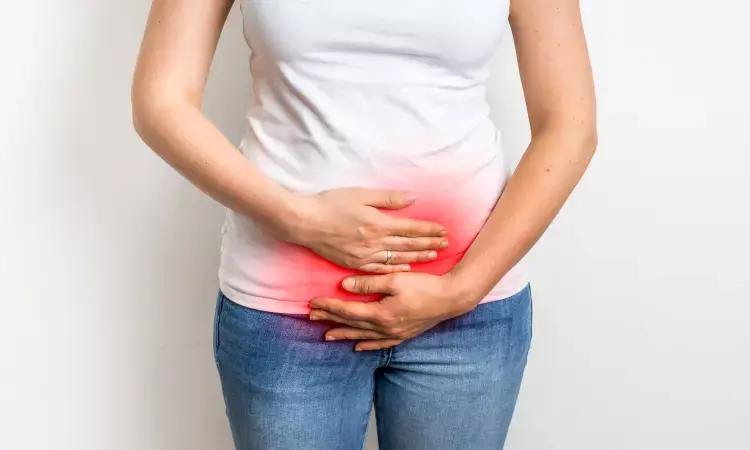- Home
- Medical news & Guidelines
- Anesthesiology
- Cardiology and CTVS
- Critical Care
- Dentistry
- Dermatology
- Diabetes and Endocrinology
- ENT
- Gastroenterology
- Medicine
- Nephrology
- Neurology
- Obstretics-Gynaecology
- Oncology
- Ophthalmology
- Orthopaedics
- Pediatrics-Neonatology
- Psychiatry
- Pulmonology
- Radiology
- Surgery
- Urology
- Laboratory Medicine
- Diet
- Nursing
- Paramedical
- Physiotherapy
- Health news
- Fact Check
- Bone Health Fact Check
- Brain Health Fact Check
- Cancer Related Fact Check
- Child Care Fact Check
- Dental and oral health fact check
- Diabetes and metabolic health fact check
- Diet and Nutrition Fact Check
- Eye and ENT Care Fact Check
- Fitness fact check
- Gut health fact check
- Heart health fact check
- Kidney health fact check
- Medical education fact check
- Men's health fact check
- Respiratory fact check
- Skin and hair care fact check
- Vaccine and Immunization fact check
- Women's health fact check
- AYUSH
- State News
- Andaman and Nicobar Islands
- Andhra Pradesh
- Arunachal Pradesh
- Assam
- Bihar
- Chandigarh
- Chattisgarh
- Dadra and Nagar Haveli
- Daman and Diu
- Delhi
- Goa
- Gujarat
- Haryana
- Himachal Pradesh
- Jammu & Kashmir
- Jharkhand
- Karnataka
- Kerala
- Ladakh
- Lakshadweep
- Madhya Pradesh
- Maharashtra
- Manipur
- Meghalaya
- Mizoram
- Nagaland
- Odisha
- Puducherry
- Punjab
- Rajasthan
- Sikkim
- Tamil Nadu
- Telangana
- Tripura
- Uttar Pradesh
- Uttrakhand
- West Bengal
- Medical Education
- Industry
Silodosin effective treatment option for refractory bladder pain syndrome among females

Portugal: A study published in the Journal of Clinical Medicine found silodosin to be an effective and well-tolerated treatment for female refractory bladder pain syndrome/interstitial cystitis (BPS/IC) patients. The effect of the therapy was sustained for 12 weeks.
Bladder Pain Syndrome/Interstitial Cystitis is a bladder-related chronic disease. Suprapubic pain tied to bladder filling is the keystone symptom associated with urinary symptoms such as nocturia, frequency, and persistent urge to relieve/prevent pain. There is no information on the effective curative treatment for BPS/IC.
Stress is known to play an essential role in patients with BPS/IC patients. Data indicate that stress increases the excitability of bladder nociceptors by stimulating the alpha1A-adrenoceptors. Pedro Abreu-Mendes and the research team from Portugal aimed to examine the safety and efficacy of daily silodosin in female patients with BPS/IC and its correlation with stress coping.
For this purpose, the researchers conducted an open-label trial in 20 refractory BPS/IC patients. Investigations occurred at baseline and the 8th and 12th weeks.
Bladder pain was evaluated by a visual analog scale (primary endpoint). Secondary endpoints were daily frequency, nocturia, and maximum voided volume procured from the O'Leary-Sant Symptom Score, 3-day bladder diary, and two questions accessing stress coping. Patients were initiated daily doses of 8 mg silodosin, which could be titrated to 16 mg. Median values with percentiles 25 and 75 (25; 75) were utilized. For comparisons, Wilcoxon signed-rank test was used. For clinically relevant improvement, the researchers established a minimally significant difference of 3 points for pain.
The study led to the following findings:
- The median age of the participants was 56 years. The median pain score decreased from 8.00 at baseline to 4.00, implying that the primary endpoint was reached.
- Total urinary frequency decreased from 14.00 to 9.00, and all the other secondary endpoints also showed a statistically significant improvement.
- Eleven patients improved by ≥3 pain points in VAS, meaning that 65% of patients that ended the study protocol achieved significant clinical improvement or, in the complete analysis set, that 55% of the 20 initial patients improved significantly.
- 82% decreased by ≥2 micturitions/day. Overall, the cohort's stress coping was low.
Daily silodosin is a well-tolerated and effective therapy for refractory BPS/IC female patients. The effect of the treatment was for 12 weeks.
"Personality type was not an independent factor for treatment response," the researchers wrote in their conclusion. "More robust studies performed to assess silodosin role in patients with bladder pain syndrome/interstitial cystitis."
Reference:
Abreu-Mendes P, Araújo-Silva B, Charrua A, Cruz F, Pinto R. Silodosin Improves Pain and Urinary Frequency in Bladder Pain Syndrome/Interstitial Cystitis Patients. J Clin Med. 2022 Sep 26;11(19):5659. doi: 10.3390/jcm11195659. PMID: 36233527; PMCID: PMC9571782.
Dr Kamal Kant Kohli-MBBS, DTCD- a chest specialist with more than 30 years of practice and a flair for writing clinical articles, Dr Kamal Kant Kohli joined Medical Dialogues as a Chief Editor of Medical News. Besides writing articles, as an editor, he proofreads and verifies all the medical content published on Medical Dialogues including those coming from journals, studies,medical conferences,guidelines etc. Email: drkohli@medicaldialogues.in. Contact no. 011-43720751


